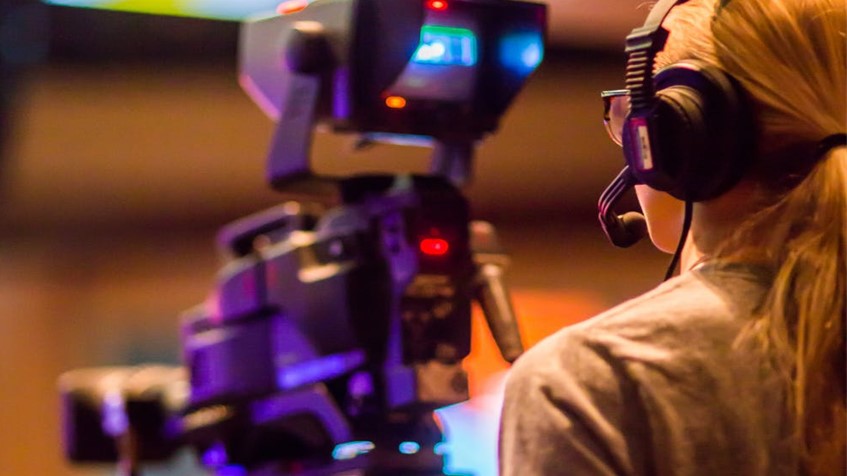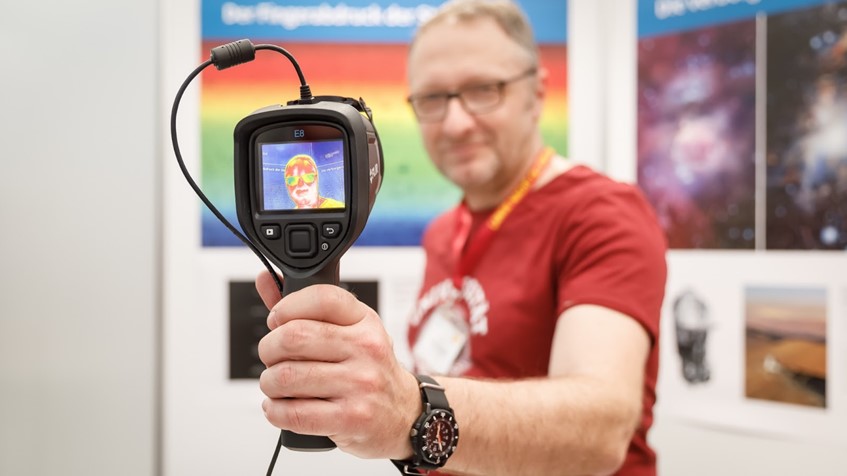Science Communication Laboratories
Seminar (10 ECTS, 3 SWS) - English language
Sarah Davies
Dorothea Born
Brigitte Gschmeidler

Are you interested in learning to communicate research to different public audiences, and in understanding the role of science communication in society? Do you want to carry out practical, hands-on coursework in an interdisciplinary environment? How about developing your skills in public presentation and communication?
What is this course about?
Science communication is everywhere in society. From government press conferences to social media, newspaper coverage, and even science-based stand up comedy, public communication of science forms a vital part of laypeople’s leisure and civic lives. It is also everywhere in science. Researchers are increasingly called on to communicate their findings, to each other and to their funders but also to the general public.
In this course students will learn to critically engage with, and carry out, public science communication. They will work in interdisciplinary groups to explore case studies of science communication, develop key skills in talking and writing about research, and create their own science communication projects. In doing so they will work with concrete cases and examples, engaging with science communication organisations in Vienna and working to produce high quality communication products (such as videos, podcasts, pop-up events, or zines) that meet real world needs.
Science in museums

Science in the media

Events and festivals

Science on social media

What happens in the course?
Students will work in three interdisciplinary groups to develop and present a science communication project. They will engage with a range of science communication organisations in Vienna and be guided by the lecturers in developing skills in public communication, from defining clear aims to considering how to reach particular audiences, creating strong messages and stories, and giving good presentations. Step-by-step and in close interaction with the lecturers the students will learn how to carry out science communication from the first idea to evaluating the end result. Tutorial support is integrated into the course and will be provided throughout the semester.
This semester the course will be held in English.
What will students learn in this course?
The content of the course will cover:
The history of science communication, and an overview of its types and formats;
Analysis of a diverse range of examples of science communication;
Key skills in creating public communication, from clarity to considering diverse audiences;
How to evaluate and assess science communication.
Students will learn:
How to collaborate as part of an interdisciplinary group;
How to respond to real world situations;
Practical skills in communication;
Concepts and tools for analysing science communication and the role of science in society;
Techniques of searching for, assessing, preparing and presenting information.
How will students be graded?
| Engagement with set readings and active participation in class | 15% | assessed individually |
| Group work and class presentations leading up to the development of a science communication project | 50% | assessed as group work |
| Writing a blog post for a public audience | 20% | assessed individually |
| Keeping a research diary | 15% | assessed individually |
Attendance is compulsory, in all sessions of the seminar as well as in all compulsory tutorials.
The grading of the course is based on the separate assessment of the different tasks on a scale of 1-5.
When and where will the course be held?
For schedule & venue please see section "Classes" on u:find.
How many students can participate and how can I apply?
The course is open for 15 students. The registration has to be done via u:space within the stated period.
For which study programs can I complete the course?
The course can be completed for modules in different study programs.
As this is a new course format we are currently still in contact with those programs to confirm the relation to modules. The list below is based on the related format "Science in Society Laboratories".
- In the master programs Chemistry and Biological Chemistry it can be completed in the "Free Elective Modules", and in the master program Chemistry & Technology of Materials in the „Elective Modul“. Please note: as part of the '(free) elective modules' in your studies, only one of the two labs (Science Communication OR Science in Society) is creditable per person, not both. In case of questions concerning one of the three master programs of SPL 27 please contact the study program director (Lothar Brecker).
- In the master program Development Studies the 10 ETCS can be completed in the "Vertiefungsmodul 9 (VM9)".
- In the master program Earth Sciences 10 ECTS will be approved in "Individual Electives" (MA-ERD-17.0).
- In the master program in Mass Media and Communication Science, the 10 ECTS can be completed within the VERIN module (Individual Specialization).
- In the master programs Molecular Biology (Molecular Biology; Genetics and Developmental Biology; Molecular Microbiology, Microbial Ecology and Immunobiology) the 10 ECTS credit points can be completed in the Elective Module Additional Scientific Qualifications for Biologists (=WZB) without the need for further inquiry with the study program director. For recognitions beyond that, please get in contact with the study program director.
- In the master program Nutritional Sciences the 10 ECTS credit points can be completed for Module 9 and 10 (Practical Skills I and II), for Internship and Guided Courses I and II, as well as Praxis I and II. For recognitions beyond that, please contact the study program director.
- In the masters program Physics a credit of up to 5 ECTS can be applied for within the framework of the supplementary module M-ERG.
- In the master program in Political Science you can complete the course for "M12 Wahlbereich".
- In the master program Social and Cultural Anthropology you can complete the course for the module "Interessensmodul".
- In the master program Sociology you can complete the course for the modules: 'MA F - Forschungsspezialisierung: Wissenschaftsforschung', or 'MA F - Forschungsspezialisierung: Kultur und Gesellschaft'.
The course can also be attended outside a specific curriculum.
If you have further questions please contact the respective study program director.
